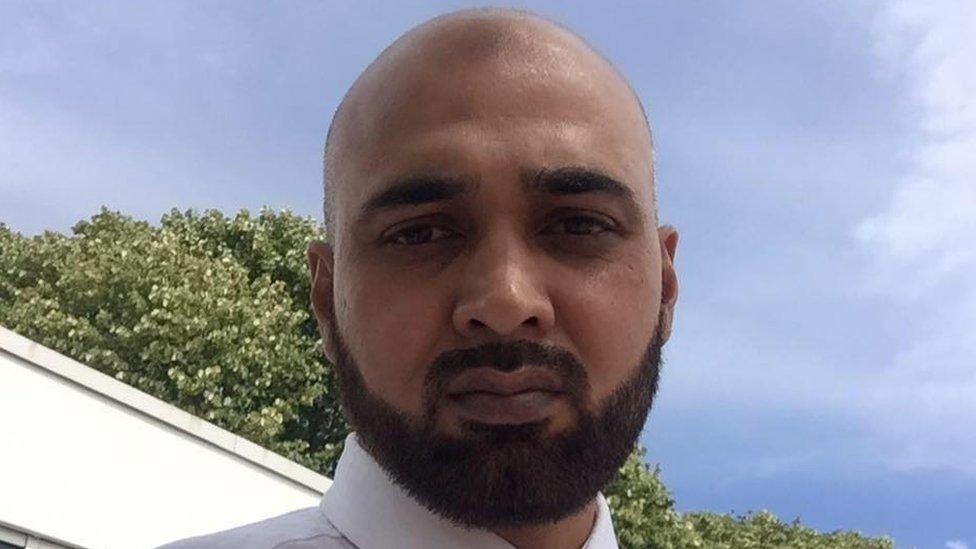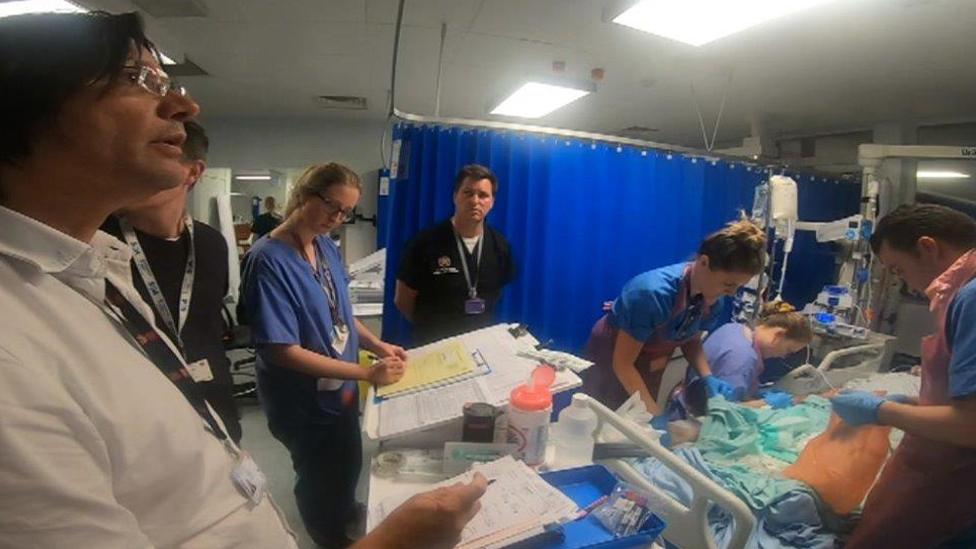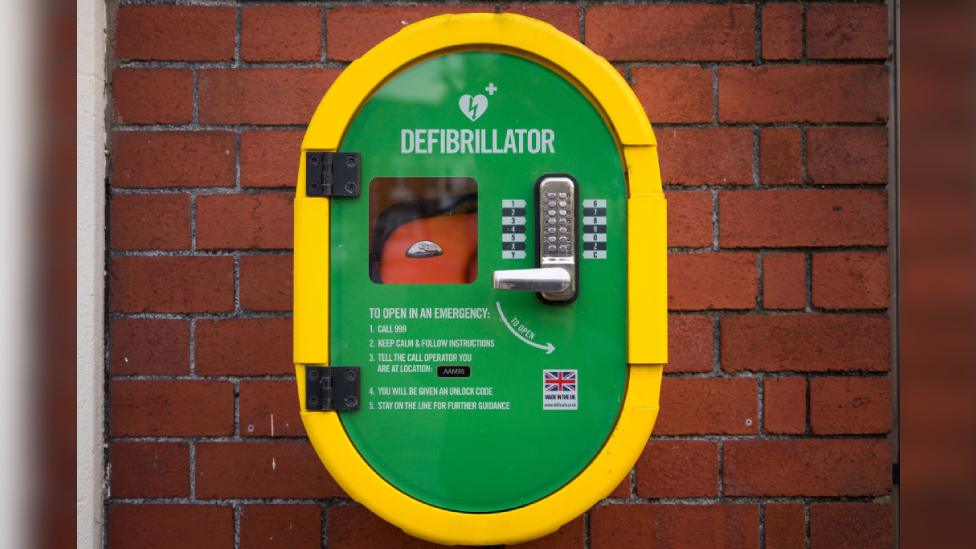Cardiff woman wakes to 'snoring' husband in cardiac arrest
- Published

Jennifer thought husband Geraint was snoring - but he was in cardiac arrest
When Jennifer Dunne was woken by her husband's snoring one night in August, she thought nothing of it.
But after nipping to the toilet, Jennifer's bemusement quickly turned to panic when she could not wake him - her husband, Geraint, was in cardiac arrest.
With the Cardiff couple's two-year-old daughter sleeping in the next room, Jennifer rang 999 and started CPR.
The incident left the avid cycler in hospital for a month, but thanks to emergency services and his wife's quick-thinking, he has a "second chance at life".
Jennifer told Welsh Ambulance Service call handler Stephen Meaker she thought her 39-year-old husband was dead.
She was instructed to get Geraint onto the floor and immediately start chest compressions.
Jennifer, 40, said: "I don't know how I did it, but I found the strength from somewhere," she said.
"I never thought I'd have to perform CPR on anyone, let alone on my husband."
Jennifer performed CPR for eight minutes before paramedics arrived and took over.
'Completely out of the blue'

Geraint never expected he would suffer a cardiac arrest
Geraint, who works at the Equality and Human Rights Commission, describes himself as a "fit and healthy" cycling enthusiast.
"The only illness I have to speak of is a kidney disease, which I've managed since childhood, but there's no family history of heart disease at all," he said.
"This came completely out of the blue to us all."
It took the crew 15 shocks with a defibrillator during one-hour-and-forty minutes of resuscitation to restart Geraint's heart.
When someone has a cardiac arrest, the heart suddenly stops beating and they collapse and become unresponsive.
They either stop breathing entirely, or they may take gasps or infrequent breaths for a few minutes, which can be misinterpreted as snoring.
Geraint was taken to the University Hospital of Wales in Cardiff, where doctors suspected myocarditis had caused his cardiac arrest.
He has since been fitted with an implantable cardioverter defibrillator (ICD), which sends electrical pulses to regulate abnormal heart rhythms.

"Our daughter would not have a dad if it wasn't for the Welsh Ambulance Service," says Mrs Dunne
Paramedic Corey Mead and emergency medical technician Jo Sherrin, who were first to arrive at the property, said they knew the call was "serious" because it is "very rare" for a 39-year-old to suffer a cardiac arrest.
Jo said: "If Geraint's wife had not woken up in the first place, it'd be a completely different story."
Friday marks the start of the Trust's annual Shoctober campaign, which is designed to educate the public about the importance of early CPR and defibrillation.
Related topics
- Published18 July 2021

- Published16 June 2021

- Published15 September 2021

- Published22 August 2021
